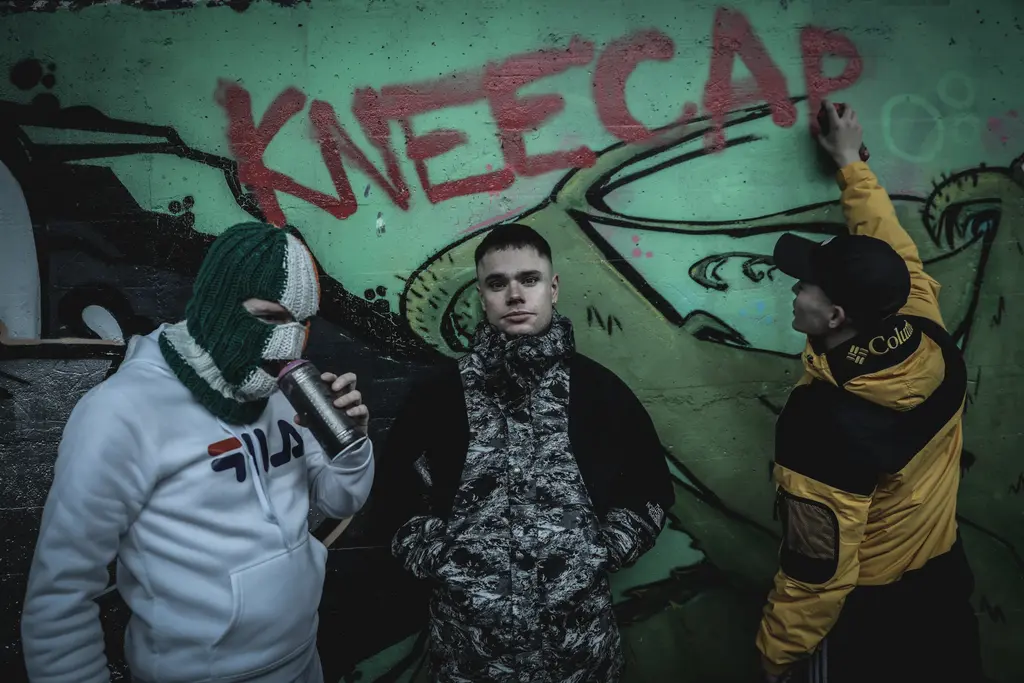Joel Sternfeld’s landmark portrait of American pathos & dreams
- Text by Miss Rosen
- Photography by Joel Sternfeld

After receiving a Guggenheim Fellowship in 1978 photographer Joel Sternfeld hit the road in a Volkswagen camper van to follow the seasons across the United States. 8 x 10 view camera in tow, he left behind his native Brooklyn and street photography practice in search of something greater still.
Sternfeld remembers an apocalyptic sense hung in the air, the nation still reeling from the abject failure of the Vietnam War and the utter disgrace of the Nixon Presidency. Desperate for the illusion of normalcy, voters tuned out warnings from then-President Jimmy Carter of a mindless malaise seeping into the nation’s soul, electing a B-list Hollywood actor with an itchy trigger finger to the White House in 1980.
Over the course of a decade, Sternfeld returned to the road time and again with the support of additional NEA and Guggenheim grants. Working with a large format camera required a new approach; at seven dollars a sheet of film, he immersed himself in the landscape, mentally storyboarding images that distilled the emotional complexity of a nation barreling into the dystopian spectre of late empire.


From the outset of his career, Sternfeld worked in colour and was fascinated by the ways in which it could elevate the medium to levels yet to be revealed. Colour was a moody, mythic force that had the power to reveal profound psychological truths of time and place.
For Sternfeld, the view camera proved the perfect instrument, it’s monumental format requiring him to develop rhythms naturally aligned with the landscape. “I can wander around all day long and never press the shutter, and it's active and exciting every minute of the day; I'm always seeing things and thinking things and having memories,” he says.
In 1987, Sternfeld published the work as American Prospects to wide acclaim, his majestic portrait of Manifest Destiny run amok. He photographed outside New York’s notorious Attica Correctional Facility, the Vietnam Veteran’s Memorial, and an abandoned uranium refinery forced on the lands of the Navajo Nation. Among his most famous images from the series is a two-story house on fire just behind farmer’s market and pumpkin patch in McLean, Virginia — a training exercise, viewers might learn after the fact, the truth only adding to its complexities.

Drawing inspiration from Walt Whitman, who kept revising Leaves of Grass all his life, Sternfeld returned to American Prospects (Steidl) in 2020 to contemplate his portrait of the nation anew. The revisited edition makes visible histories intrinsically woven into the American landscape that have otherwise gone overlooked: that of indigenous nations who have been stewards of the land for millennia now living inside the belly of the beast.
Taken together, these photographs speak of Two Americas — myth and truth — that have always coexisted in plain sight. “In the future, no doubt, these images will seem suffused with nostalgia, much as we now see Walker Evans’s photographs of the 1930s,” photo critic Andy Grundberg writes in the book. “But for now they speak of a time when progress lost its sense of inevitability.”
Enjoyed this article? Follow Huck on Instagram.
Support stories like this by becoming a member of Club Huck.
Latest on Huck

Inside Kashmir’s growing youth tattoo movement
Catharsis in ink — Despite being forbidden under Islam, a wave of tattoo shops are springing up in India-administered Kashmir. Saqib Mugloo spoke to those on both ends of the needle.
Written by: Saqib Mugloo

The forgotten women’s football film banned in Brazil
Onda Nova — With cross-dressing footballers, lesbian sex and the dawn of women’s football, the cult movie was first released in 1983, before being censored by the country’s military dictatorship. Now restored and re-released, it’s being shown in London at this year’s BFI Flare film festival.
Written by: Jake Hall

In the dressing room with the 20th century’s greatest musicians
Backstage 1977-2000 — As a photographer for NME, David Corio spent two decades lounging behind the scenes with the world’s biggest music stars. A new photobook revisits his archive of candid portraits.
Written by: Miss Rosen

In Queens, local surfers are moulding a neighbourhood in their own renegade images
Rockaway breaks — On a little-known stretch of beach in eastern New York City, an ecosystem of wave catchers, and the local bars and restaurants that fuel them, is seeing a boom. Paolo Bicchieri meets the residents and business owners behind the growing swell.
Written by: Paolo Bicchieri

Kneecap describe atrocities in Gaza as “medieval type slaughter” after breaking of ceasefire
Saoirse Don Phalaistín — The Irish rap trio took to X yesterday to criticise the “US-backed” Israeli authorities.
Written by: Isaac Muk

Capturing joy and resilience in Istanbul through tumultuous times
Flowers in Concrete — As protests break out across Istanbul, photographer Sıla Yalazan reflects on the 2013 Gezi Park movement, and capturing beauty as the city has undergone economic change and political tension.
Written by: Isaac Muk





